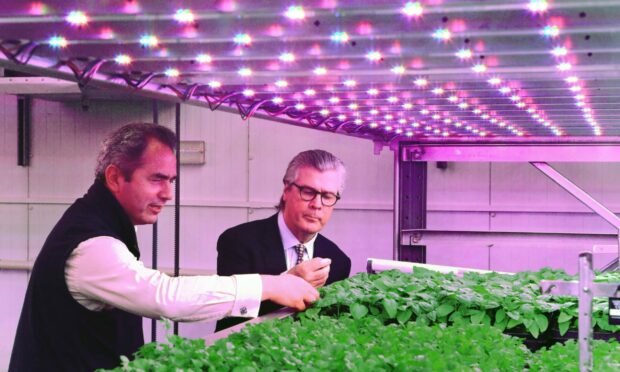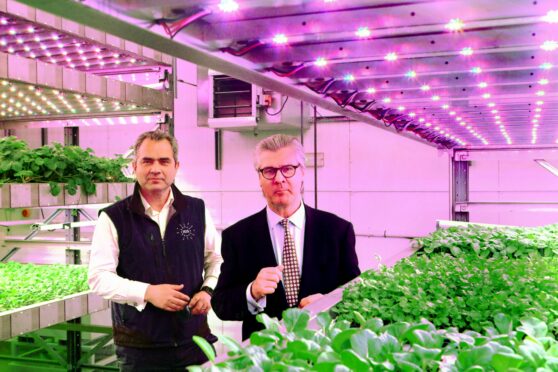A digital farm in Tayside could offer a blueprint for tackling the cost of living crisis, according to a Scotland Office minister.
Malcolm Offord made the remarks while visiting Intelligent Growth Solutions in Invergowrie.
The farm, which is also known as a vertical farm, sees multiple layers of crops – such as strawberries, basil and chillies – being grown inside a lab that simulates the perfect growing environment.
Staff at the farm are able to control the light, temperature, humidity, water, nutrients and CO2 levels the crops are exposed to, allowing farmers to grow crops all year round.
Mr Offord says technology such as this could be one way to tackle to the ongoing cost of living crisis.
Calls for food production to be cheaper
With the cost of fuel, food and other basic essentials skyrocketing, Mr Offord wants to see farming and food brought closer to home to cut down on energy and transportation costs.
He said: “We have a bit of a perfect storm with fuel prices going up and the cost of living going up.
“What this is designed to do is mitigate that and bring food closer to the people, reduce waste and reduce transport costs.
“What is fascinating here in Scotland is the farmers and engineers are trying to think about food security and food production and how to make it cheaper and closer to where people live.”
The Tay Cities Deal is a partnership between the UK and Scottish Governments and other public and private organisations, investing £700m in projects across the Tayside region.
Help with farm worker shortages
Mr Offord also says new technology like digital farming could help mitigate the post-Brexit farm worker shortages as it is less labour intensive than traditional farming.
Although Westminster has extended its seasonal worker visa scheme, NFU Scotland says farms across Scotland are struggling to recruit enough staff to meet demand.
The farming union claims worker shortages in 2021 saw millions of pounds of waste and crop loss.
The UK Government will offer 30,000 visas to agricultural workers until 2024 but wants the number handed out in the second year of the scheme reduced and more UK workers recruited instead.
Andrew Lloyd, chief operating officer at Intelligent Growth Solutions, said: “This in itself is lower labour than traditional farming methods, and it also enables farmers to grow all year round.
“It allows them to grow crops they have never grown before too, so it also offers diversification and a wider range of produce.”


